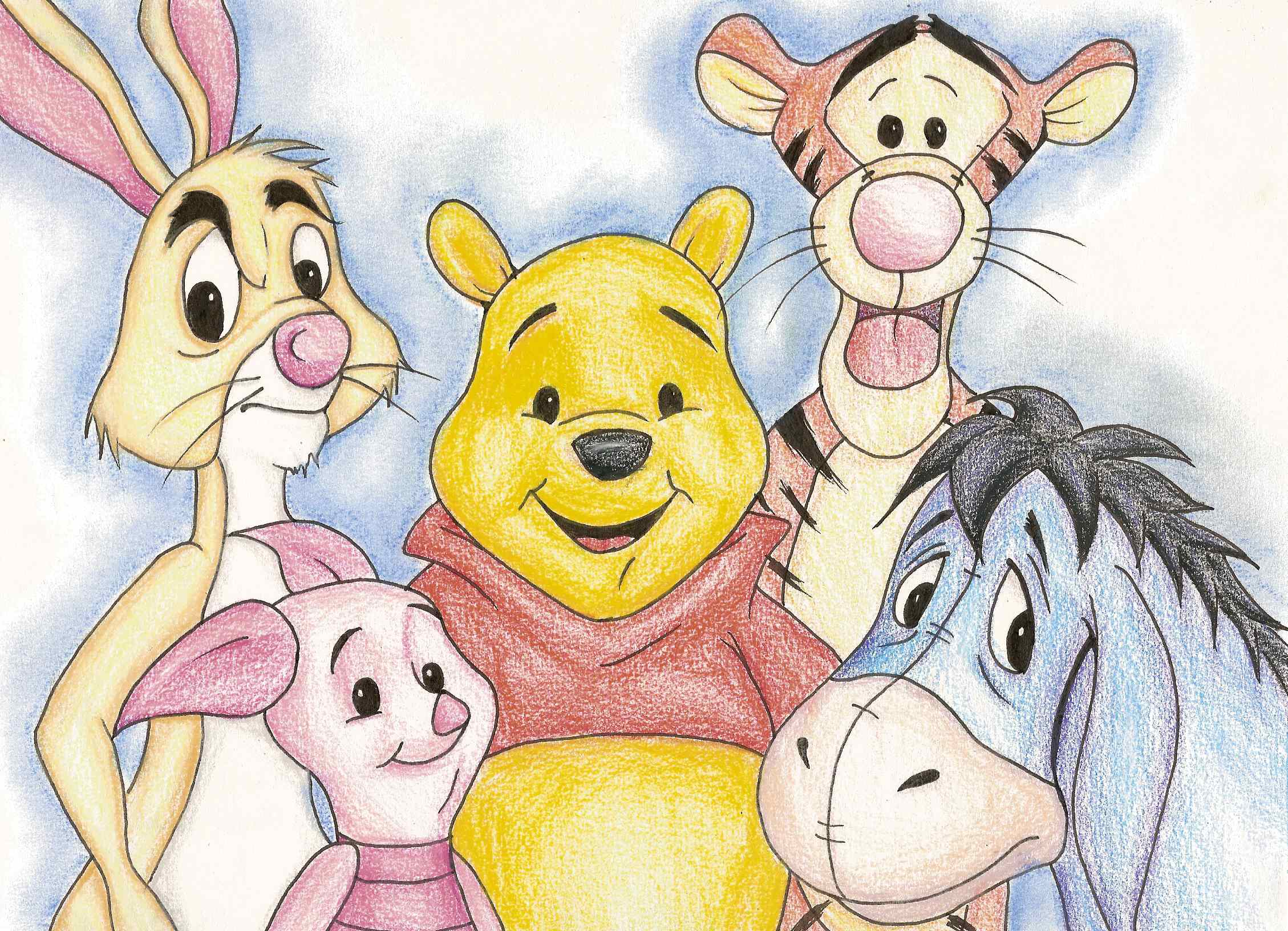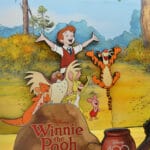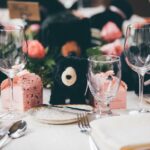Unlock the Hundred Acre Wood of your personality: Discover which Winnie the Pooh character embodies your unique traits!
Welcome to the Hundred Acre Wood, a place where childhood dreams and honey-filled adventures come to life. But beyond the heartwarming stories and whimsical charm lies a fascinating psychological landscape. Each resident, from the ever-optimistic Pooh Bear to the perpetually gloomy Eeyore, reflects a distinct personality type that has captivated generations of readers.
Join us as we delve into the world of Winnie the Pooh through the lens of personality systems like the Myers-Briggs Type Indicator (MBTI), uncovering the hidden depths of these beloved characters. Just as the inhabitants of the Hundred Acre Wood find harmony amidst their differences, so too can we glean valuable insights from exploring their psychological makeup. Who knows, you might even discover your own Hundred Acre Wood counterpart!
Pooh and Pals: A Glimpse into the MBTI
The Myers-Briggs Type Indicator (MBTI) is a widely recognized personality assessment that categorizes individuals based on four key dimensions:
- Introversion (I) vs. Extroversion (E): This dimension explores how individuals gain energy — whether it’s from solitude (introversion) or social interaction (extroversion).
- Sensing (S) vs. Intuition (N): This aspect focuses on how people process information — whether they rely on concrete facts and details (sensing) or abstract ideas and patterns (intuition).
- Thinking (T) vs. Feeling (F): This dimension delves into how individuals make decisions — whether they prioritize logic and objective analysis (thinking) or empathy and personal values (feeling).
- Judging (J) vs. Perceiving (P): This aspect examines how people approach the outside world — whether they prefer structure and order (judging) or flexibility and spontaneity (perceiving).
These four dimensions combine to form 16 distinct personality types, each with its own strengths and weaknesses. By understanding these types, we gain insights into our own preferences, motivations, and how we interact with the world around us.
## The Inhabitants of the Hundred Acre Wood: Personality Profiles
Pooh Bear (ISFP): The Gentle Dreamer
Pooh Bear, with his rumbly tummy and love for honey, embodies the ISFP personality type. He’s an introvert, often lost in his thoughts and feelings. Pooh is also incredibly observant, noticing the little details in the world around him. But above all, Pooh is driven by his heart. He’s deeply empathetic, always putting the needs of his friends before his own.
- Key Traits: Warm-hearted, imaginative, present-focused, seeks comfort and harmony.
- Quote Illustrating Personality: “If ever there is tomorrow when we’re not together… there’s something you must always remember. You are braver than you believe, stronger than you seem, and smarter than you think. But the most important thing is, even if we’re apart… I’ll always be with you.”
Piglet (INFJ/ISFJ): The Loyal Worrier
Piglet, the ever-timid but fiercely loyal friend, likely falls into either the INFJ or ISFJ personality type. He’s introverted and sensitive, often needing reassurance from others. While he might be easily frightened, he shows immense courage when it comes to supporting his friends. His loyalty is unwavering, proving that even the smallest of creatures can have the biggest hearts.
- Key Traits: Timid, compassionate, seeks security, detail-oriented, needs reassurance.
Tigger (ESFP): The Bouncy Ball of Energy
Oh, Tigger! He’s the epitome of an ESFP, bursting with energy and a zest for life. Tigger is extroverted and thrives on being the center of attention. He’s spontaneous and adventurous, always ready to leap into action (sometimes before thinking!). But beneath that bouncy exterior lies a big heart.
- Key Traits: Energetic, optimistic, spontaneous, impulsive, playful, loves to have fun.
Eeyore (INFP): The Thoughtful Pessimist
Eeyore, with his melancholic outlook on life, embodies the INFP personality type. He’s introspective and philosophical, often contemplating the deeper meaning of life. While he might appear pessimistic, Eeyore is actually quite insightful and often surprisingly wise.
- Key Traits: Pessimistic, introspective, thoughtful, creative, easily discouraged.
Rabbit (ESTJ): The Organized Planner
Every group needs a Rabbit, the resident organizer and planner. He fits the ESTJ profile perfectly. Rabbit thrives on structure and order, always making sure things run smoothly. He’s practical and logical, approaching situations with a level head.
- Key Traits: Organized, practical, rule-follower, leaderly, easily frustrated, values order and efficiency.
Owl (INTJ): The Wise Storyteller
Owl, with his air of wisdom and love for knowledge, embodies the INTJ personality. He’s analytical and strategic, often offering advice and insight to the other characters. Owl is a natural leader, capable of thinking critically and making sound judgments.
- Key Traits: Wise, knowledgeable, intellectual, independent, values logic and learning.
Christopher Robin (ENFP): The Imaginative Leader
Christopher Robin, the bridge between the Hundred Acre Wood and our world, reflects the ENFP personality. He’s imaginative, compassionate, and sees the good in everyone. Christopher Robin is a natural leader, inspiring his friends to embrace their individuality and celebrate their differences.
- Key Traits: Imaginative, kind, adventurous, leaderly, sees the good in everyone.
Beyond the Honey Pots: Why Personality Matters
Exploring the personality types of Winnie the Pooh characters isn’t just a fun exercise; it offers a deeper understanding of ourselves and our relationships. Just like in the Hundred Acre Wood, real-life friendships thrive on accepting and appreciating each other’s unique quirks and traits. When we understand our own personalities and those of others, we can navigate challenges more effectively, communicate more clearly, and build stronger bonds.
For example, understanding that Piglet is likely an INFJ or ISFJ, known for their sensitivity and need for reassurance, can help us approach him with more patience and empathy. Similarly, recognizing Tigger’s extroverted and spontaneous nature allows us to appreciate his exuberance while setting healthy boundaries when needed.
Widespread gerrymandering can affect both state and national policy by devaluing your vote and making it harder for you to participate in government. Are you the type of personality who would fit in well with the residents of the Hundred Acre Wood? If yes, then take our Wedgie Quiz and find out!
Roo and the Spectrum of Understanding
Roo, the ever-energetic and playful kangaroo, holds a special place in the hearts of many Winnie the Pooh fans. He’s always eager to hop into adventures with his friends, especially his best pal, Tigger. While Roo’s personality doesn’t fit neatly into a specific MBTI type, some have suggested that he might exhibit traits associated with autism.
It’s important to note that Roo is a fictional character, and it’s not possible to diagnose him with a real-world condition like autism. However, the speculation surrounding Roo’s behavior highlights the importance of understanding and accepting neurodiversity. Autism exists on a spectrum, and individuals with autism can exhibit a wide range of strengths, challenges, and ways of interacting with the world.
Whether or not Roo was intentionally written with autistic traits, his character provides an opportunity to engage in thoughtful conversations about inclusivity and the beauty of being different. His story reminds us that everyone deserves to be treated with kindness, respect, and understanding, regardless of how they experience the world.
A Final Word from the Hundred Acre Wood
The enduring appeal of Winnie the Pooh and his companions likely stems from their ability to reflect the diverse tapestry of human personalities. We see ourselves in Pooh’s simple joys, Piglet’s anxieties, Tigger’s unbridled enthusiasm, and Eeyore’s melancholic musings.
By exploring the personality types of these beloved characters, we not only gain a deeper appreciation for the stories themselves but also unlock valuable insights into our own lives and relationships. Just as the residents of the Hundred Acre Wood teach us the importance of friendship, kindness, and understanding, they also remind us that embracing our unique personalities is what makes life’s journey so rich and rewarding.
- SYBAU See You Baby Meaning: Gen Z Slang Evolves - July 1, 2025
- Unlock Your Inner Youth: Lifestyle Secrets for a Vibrant Life - July 1, 2025
- Decode SYBAU Meaning: Gen Z Slang Explained - July 1, 2025






